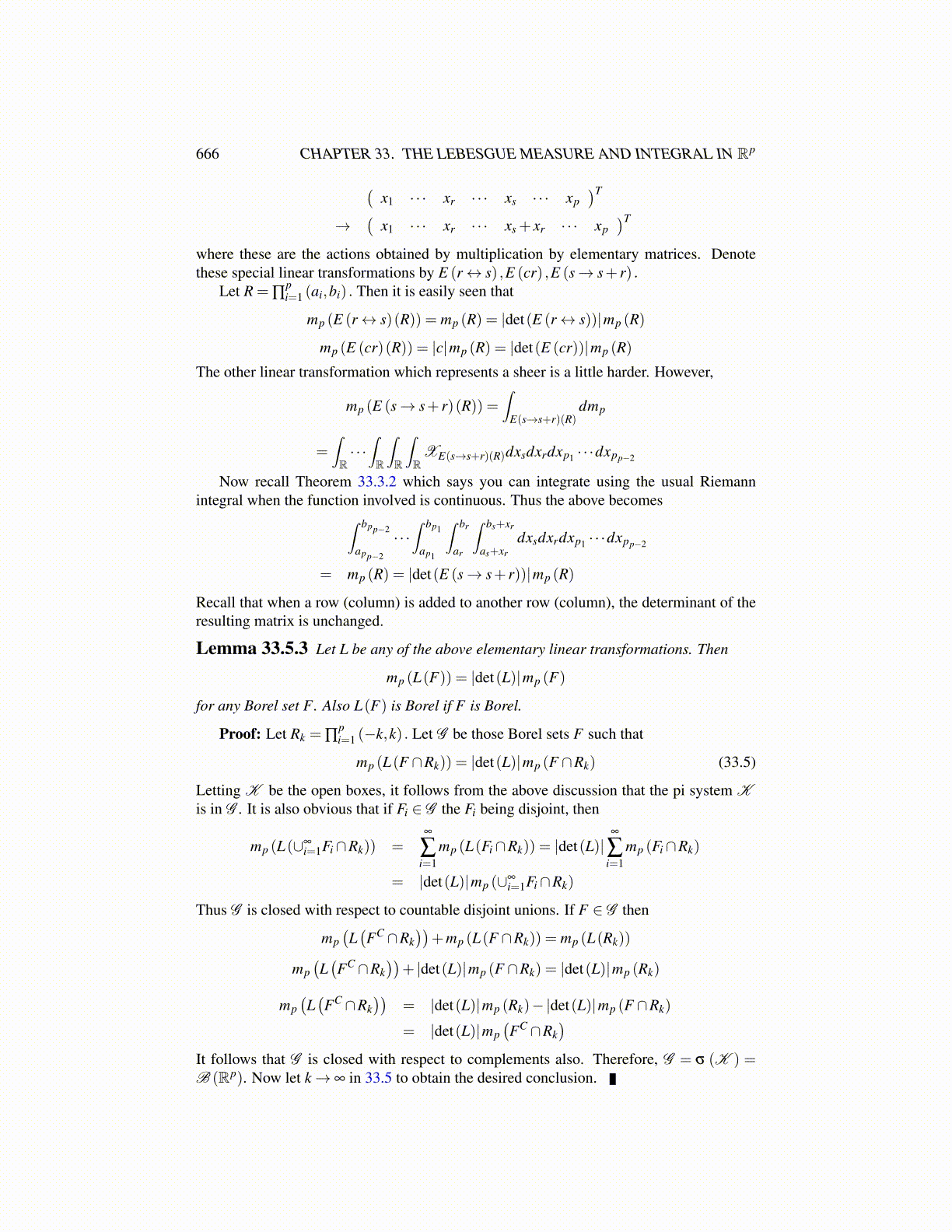
666 CHAPTER 33. THE LEBESGUE MEASURE AND INTEGRAL IN Rp
=∫
UXRk (h(x)) |det(Dh(x))|dmp =
A∫U
XE∩Rk (h(x)) |det(Dh(x))|dmp +∫
UXEC∩Rk
(h(x)) |det(Dh(x))|dmp
It is known that A = B so subtracting from both sides yields∫h(U)
XEC∩Rk(y)dmp =
∫U
XEC∩Rk(h(x)) |det(Dh(x))|dmp
Therefore, by Dynkin’s lemma, G equals B (Rp) . Now let k → ∞ and apply the monotoneconvergence theorem. The following theorem is now almost obvious because it was justshown that the change of variables formula holds for indicator functions of Borel sets andhence for every nonnegative simple function.
Theorem 33.6.3 Let f (y)≥ 0 and let it be Borel measurable. Also let h be a oneto one C1 function on the open set U such that h(U) =V and |detDh(x)| ̸= 0. Then∫
Vf (y)dmp =
∫U
f (h(x)) |det(Dh(x))|dmp
Proof: By Theorem 32.2.8, there exists an increasing sequence of Borel measurablesimple functions {sk} which converges pointwise to f (y). Then by the monotone conver-gence theorem,∫
Vf (y)dmp = lim
k→∞
∫V
sk (y)dmp = limk→∞
∫U
sk (h(x)) |det(Dh(x))|dmp
=∫
Uf (h(x)) |det(Dh(x))|dmp
A lot more can be done. See a more advanced book for these things. My on linebook Calculus of real and complex variables has it. You don’t need to have h be C1.Differentiable is enough. You also don’t need to assume |detDh(x)| ̸= 0 or even that h isdifferentiable everywhere, but this is a good beginning result.
33.7 Exercises1. Show
∫M0 sin t
∫∞
0 e−xtdxdt =∫M
0sin t
t dt. Use Fubini’s theorem to interchange theorder of integration and eventually conclude that the improper Riemann integral∫
∞
0sin t
t dt exists and is 12 π.
2. This problem will help to understand that a certain kind of function exists.
f (x) ={
e−1/x2if x ̸= 0
0 if x = 0
show that f is infinitely differentiable. Note that you only need to be concerned withwhat happens at 0. There is no question elsewhere. This is a little fussy but is not toohard.